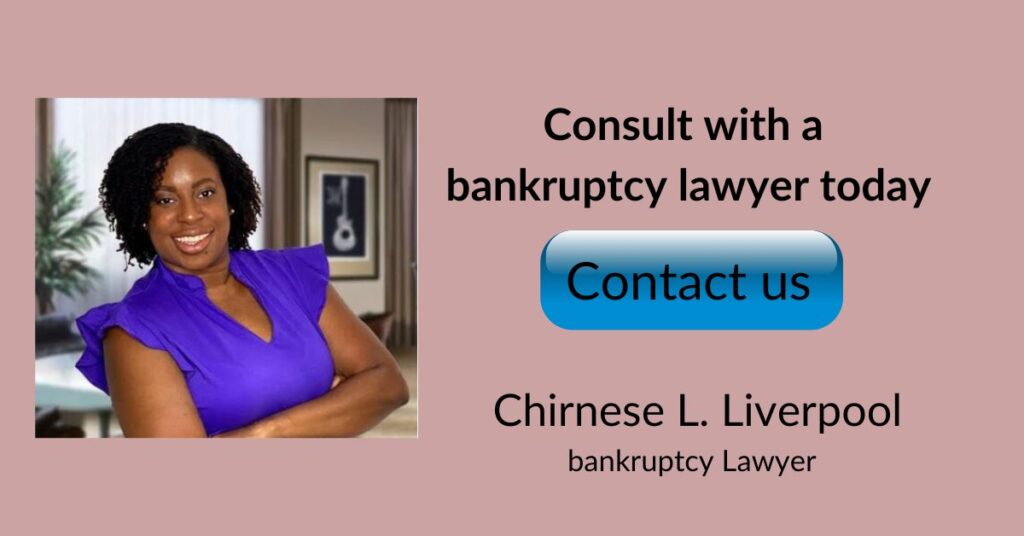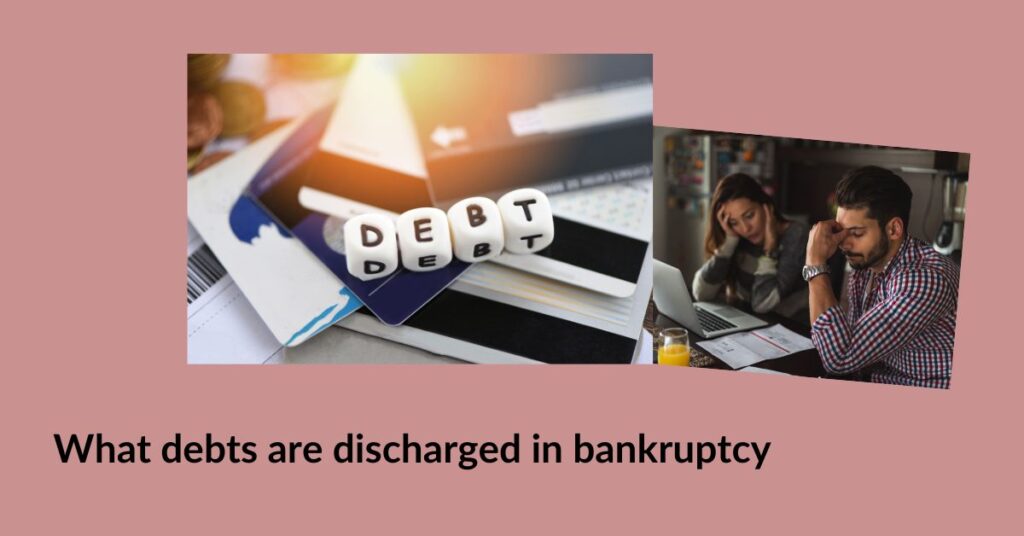n bankruptcy, certain debts are discharged, which means that the debtor is no longer legally required to pay them. Some common examples of debts that may be discharged in bankruptcy include:
- Credit card debt
- Medical bills
- Payday loans
- Personal loans
- Deficiency balances on repossessed vehicles
It’s important to note that not all debts are dischargeable in bankruptcy. Some examples of debts that may not be discharged include:
Most student loans (although some exceptions apply)
- Most taxes
- Child support
- Alimony
- Most criminal fines
The specific debts that are dischargeable in bankruptcy depend on the type of bankruptcy case being filed and the laws of the state where the bankruptcy is being filed. It’s always a good idea to consult with a bankruptcy attorney to determine which of your debts may be discharged in bankruptcy.
If you need assistance with filing for bankruptcy, give the Law Offices of Chirnese L. Liverpool a call today at (818) 714-2200. I have a limited amount of appointments available, so please contact us immediately to get started with your new debt free future.


